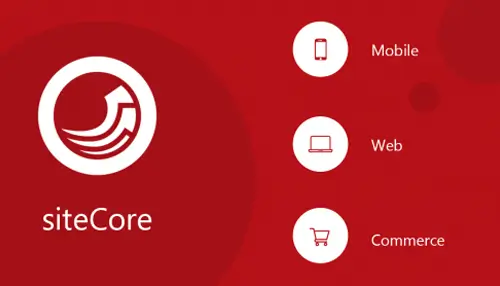Sitecore is an enterprise content management system (CMS) developed by Sitecore corporation. Based on ASP.net, Sitecore was introduced in 2001 and late 2019 released version 9.3. The Sitecore CMS provides a platform with which developers can create a custom website page components. Sitecore for developers contains many usage and advantages which can help them to build reliable websites that deliver consistent and memorable user experiences to their clients.
Sitecore CMS is arguably the most popular enterprise-level CMS for the web because it packs content management, analytics, and personalization into one platform. Sitecore is known as the e-commerce platform that gathers insights about clients’ activities and choices while visiting a website, across every device, in real-time. Besides providing ways to collect and analyze data for improved marketing, Sitecore’s various features also make life easier for other operational aspects of the business.
Benefits From Sitecore For Developers
From import and export functionality to an extensive support system for technical issues, we take a look at top features and benefits from Sitecore for Developers.
-
Easy Integration
-
Security
-
Separate Design And Content
-
Flexible Configuration
-
Import Functionality For Other Projects
-
Rapid Development
-
Deployment Options
-
Extensive Support System
The system can be integrated into commonly used software such as CRM (customer relationship management), Salesforce, and other data-collecting systems.
Sitecore allows developers to restrict access and content-user capabilities. Access can be restricted at the account or item level, providing more flexibility for projects involving multiple stakeholders. Sitecore’s security model also provides an Inheritance access right (controlling whether security rights can be passed from parent items to child items) with the ability to grant the Inheritance access right on a per-account basis.
Content management and content delivery can be dealt with separately when using Sitecore so developers can concentrate on their main tasks such as managing client demand, administration, and security.
Sitecore’s CMS is fully customisable, and almost anything can be overridden or extended. Sitecore’s kernel is built using ‘dependency injection’, meaning that in the web.config you can swap out the Sitecore classes with your own, and even have the option to extend or rewrite how default functionality works.
Developers can export customised functionality from Sitecore into a package that can then be imported to another project, giving the benefit of code reuse. Packages can contain Sitecore items, DLLs, web controls, templates, and CSS, and are installed and managed from the Sitecore desktop view.
When using Sitecore, Developers can use external tools like Microsoft Visual Studio, allowing work to be completed faster. Debugging tools and code completion enhancements are also available and help to make a developer’s life easier by reducing errors.
Sitecore’s design enables developers to manage and deploy an unlimited amount of code across any of the sites, instantly.
Sitecore Support contains a substantial Knowledge Base, online communities and a team of experienced developers, allowing companies and individual users alike to access support and insights on various issues. The support system is particularly helpful for developers, providing multiple answers and techniques to technical issues.
Roles And Responsibilities Of Sitecore For Developers
As long as you are interested in productive work and efficient collaboration with your development team, it is important to understand Sitecore developer roles and responsibilities.
Sitecore developer roles and responsibilities rely on developing, creating, and modifying the experience platform to optimize performance, analyze user needs, and make related software solutions. Using the best practices, developers can implement advanced and secure coding. They work on both delivering exceptional user experiences and implementing efficient tools for the company’s staff.
Let’s specify some common responsibilities of a Sitecore developer: –
- Requirement analysis – the full engagement of senior developers and business analysts is really important at this stage. Professional reviewing non-technical user stories enable reasonable tech solutions for the future needs of the company.
- Architecture planning – The complex system of projects requires great scalability thus technical capabilities are supported over container-based architecture.
- Documentation – Comprehensive documentation is a must-have to support software sustainability. It should be completed before the product implementation starts.
- Database implementation – The Sitecore developer is also responsible for ensuring such properties as security, flexibility, usability, and integrity. They commonly work with structured-oriented SQL databases.
- Sitecore development – The professional team will guarantee the product presence and management on browsers, mobile, and IoT devices.
- Testing – To ensure consistent service quality, each of the involved developers has to be proficient in testing and ready for close collaboration with QAs.
- Maintenance – The Sitecore developer is also capable of troubleshooting, investigating, and debugging issues.
- Functionality expanding – Constant improvements and new feature implementation make this CMS the market choice for companies that look for the latest solutions. You need to have Sitecore developers in the team even after the launch of the main website application to work on the implementation of new features.
Conclusion
With research showing that brand reputation will be increasingly defined by customer experience over price and product in the next couple of years, many organizations are expected to choose Sitecore to strengthen their market position through engaging, personalized content. It is the right time to hammer the hot iron rod for developers to get acquainted with Sitecore and reap the ultimate benefits that today’s market offers.
Visit our website for more details and information.







